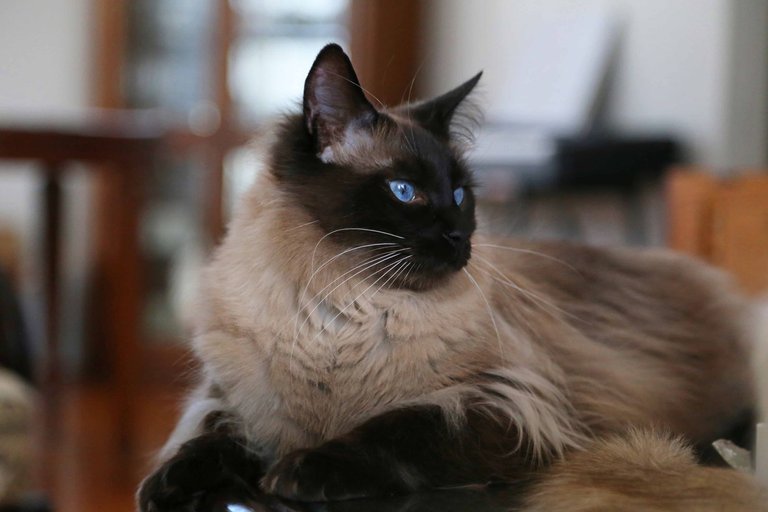
The Balinese cat carries a sample of its Siamese ancestors, but the style of body and personality is like in Persian kittens. They come in just four colors like Siamese hips that are: white, chocolate, blue and purple.
Balinese cats are smart, sweet and fun. Like Siamese, they are known for their ability to communicate, sometimes it is non-stop so these cats are not for everyone. They are very social, they are very emotional if you are not well they will do everything to make you happy.
They are very fast jumpers and they like to be on your shoulders. They love to play and will easily teach you how to play catches, and you will add balls or toys to throw them back. They will entertain you with their fools, but they will love you very much. When they seek attention they can be very persistent, but still have their dignity.
Long kittens began to spontaneously appear in the early 1900s in Siamese short-legged litter. Some breeders claim that a long hair hair was introduced in Europe after the First World War. Siamese cats were almost destroyed as European breeds after the war (as well as other breeds), breeders used other breeds after wars to make the vines depleted.
Other breeders believe that the gen for long hair has been mutated, which is also possible. About both theories was sporadic because each had its advocates, but no one knows for sure what the theory is.
Long-haired Siamese cats were registered in 1928, and only in 1940 they had seriously found breeding. At that time, several breeders started working with long-drawn cats born in pure-blooded Siamese litter.
Helen Smith gave them the name for dancers from Bali Island because of graceful movements and well-groomed lines. Many Siamese cattle breeders did not believe that the Bengal cat was born with a natural mutation, and Helen Smith and Sylvia Holland worked on the development of this breed.
The group of words associated with cat (catt, cath, chat, katze) stem from the Latin catus, meaning domestic cat, as opposed to feles, or wild cat.